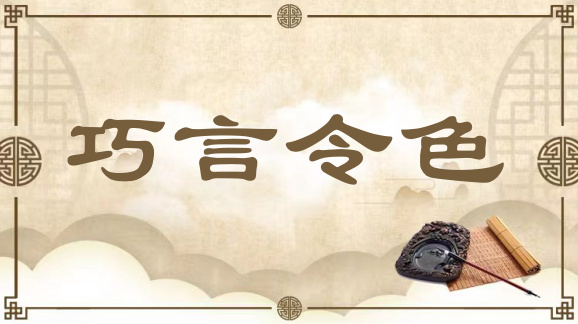Artful Words and a Pleasing Demeanor

机巧的言语和伪善的神色。“巧言令色”一说出自《论语》。“巧”本指巧妙,“令”本指美善。但在“巧言令色”中,“巧”“令”皆有贬义。“巧言令色”指出于欺骗或取悦他人的目的,以虚伪的方式精心修饰自己的言语与神色。孔子(前551—前479)特别指出,以“巧言令色”对待他人,是与仁德的要求相背离的。
This concept originates from The Analects. While the word qiao (巧) or "artful" itself typically denotes cleverness or skill, and ling (令) or "pleasing" generally signifies virtue or goodness, both adopt negative connotations in the context of the phrase "artful words and a pleasing demeanor." The concept refers to the intentional use of flattering or deceptive language and expressions to manipulate or mislead others. Confucius (551-479 BC) explicitly stated that treating others with "artful words and a pleasing demeanor" contradicts the principles of benevolence and virtue.
引例 Citation:
◎子曰:“巧言令色,鲜矣仁!”(《论语·学而》)
孔子说:“以机巧的言语和伪善的神色待人,很少能成就仁德。”
Confucius said, "Artful words and a pleasing demeanor are seldom in line with true virtue." (The Analects)
推荐:教育部 国家语委
供稿:北京外国语大学 外语教学与研究出版社
责任编辑:钱耐安





